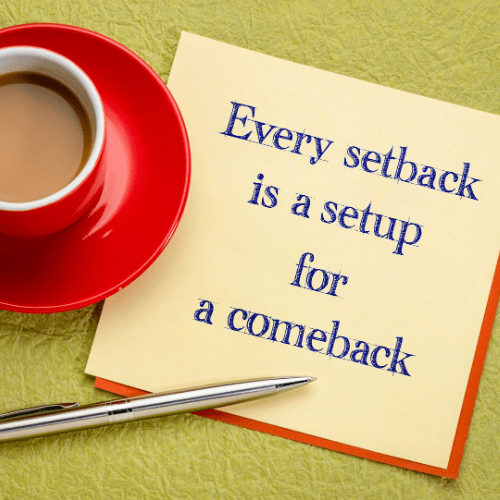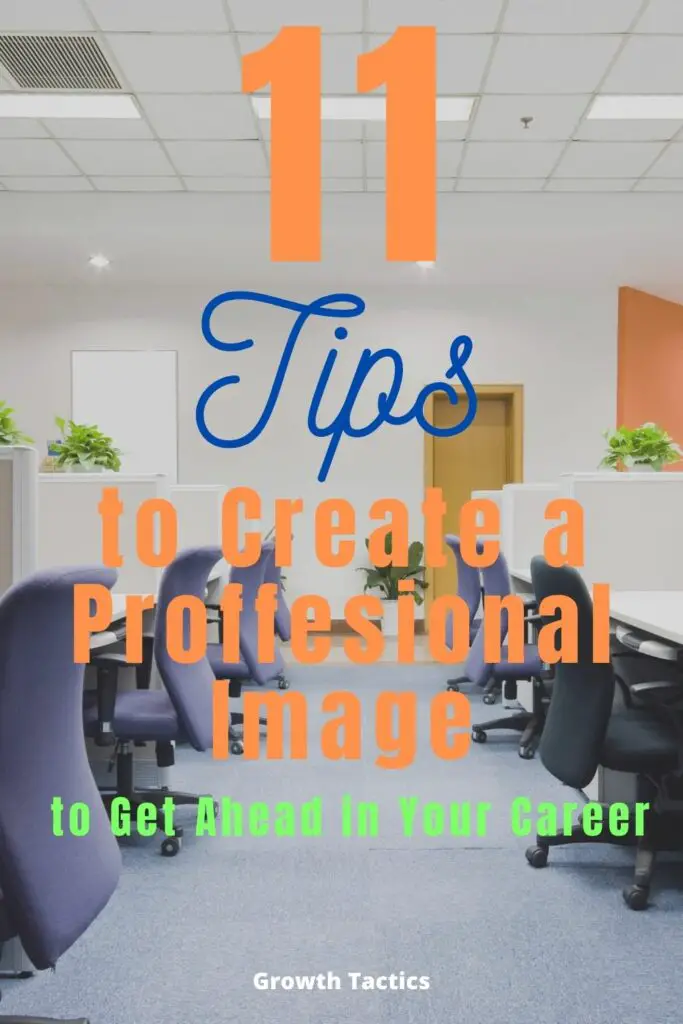Jump To Section
What are Personal Branding and Personal Image?
When you hear branding you probably think about companies and how they promote themselves. Personal branding is similar but it is how you promote yourself and how others see you. In other words, it’s your professional image. Your brand is your name, face, and actions. Creating a professional image at work is key to success in many businesses today.
Why is Personal Branding Important for Your Image?

Have you ever seen a person work hard but still get a bad rep? It might be because their communication skills lack or they might work themselves in circles focusing on the wrong things or they might have a bad attitude. I’ve seen many people get passed up on promotions for these very reasons.
I’ve seen people get promoted even though they work half as hard as these other people because they have the right image. Image is everything and a proper personal brand image can help you get and maintain a good image.
What If You Have a Professional Image You Don’t Like?
Even if you’ve done things to tarnish your image in the past, it’s not too late to start creating the professional image you want. Be the person you want everybody to see you as.
Don’t think that because people see you as a certain type of person you need to be that type of person. It’s never too late for personal image development. The tips below will help you rebuild and create a positive image.
Personal Branding Examples
Below are some examples of personal branding to the point that these people are common household names. In fact, many of these people can raise the value of a company or organization just by putting their name on it. You will likely not be on their level yet but there is a lot to be learned from people that have boosted their professional image to the point that these people have.
- Elon Musk is an entrepreneur and philanthropist who is currently CEO of Twitter, Space X, and Tesla but has also founded multiple other successful businesses.
- Warren Buffet is an investor, business tycoon, and philanthropist who is currently the CEO of Berkshire Hathaway and is one of the richest people in the world.
- Donald Trump is an entrepreneur, investor, and past president. Love him or hate him he has one of the most recognizable names and faces.
- Michael Jordan is of course one of the greatest basketball players to ever live. Many people have and still look up to him as a role model decades after he retired from the game. He was a vital piece in fueling the growth of Nike and multiple other companies he endorsed.
Tips for Creating a Professional Image and Personal Brand at Work

1. Be You
Trying to be something you’re not can be mentally exhausting. Be yourself and don’t try to be something else. Everyone can spot someone fake from a mile away. That doesn’t mean not being professional, you should always be professional. There may be times when you have to be political and do things you don’t want to do but that shouldn’t stop you from being you.
If there are qualities you don’t like about yourself, change them. Don’t try to hide them, work on changing them for the better. For more information on building leadership qualities click the link.
2. Be Consistent
In today’s fast-paced world, it’s easy to get caught up in the hustle and bustle of life and forget that our actions can have a significant impact on our personal brand and professional image. You may have done a million things right, but all it takes is one mistake to damage your reputation and undo all your hard work. However, it’s important to remember that no one is perfect, and mistakes are a natural part of life.
The key to maintaining a positive professional image is not to avoid making mistakes but to handle them in the right way. How you handle a mistake can often be more important than the mistake itself. It’s essential to take responsibility for your actions and own up to any mistakes you make. Trying to hide or deny your errors will only make matters worse and damage your credibility.
When you make a mistake, it’s important to be proactive in addressing it. This means taking the initiative to reach out to those affected by your mistake and apologizing for any harm caused. You should also take steps to correct the mistake and prevent it from happening again in the future. This shows that you are committed to learning from your mistakes and improving your performance moving forward.
Consistency is also crucial when it comes to maintaining a positive professional image. Even when you mess up, it’s important to remain consistent in your behavior and actions. This means continuing to demonstrate the same level of professionalism and integrity as you did before the mistake. Consistency can help to rebuild trust and credibility with those who may have been affected by your mistake.
3. Have Confidence
Confidence is a key ingredient to success, both personally and professionally. When you are confident in yourself and your abilities, you are more likely to take risks, pursue your goals, and overcome obstacles. However, confidence is not always easy to come by, and it’s natural to experience moments of self-doubt.
When you feel your confidence starting to waver, it’s important to take a step back and focus on displaying confidence. This doesn’t mean you should pretend to be someone you’re not, but rather, focus on projecting a positive image of yourself. This may involve practicing positive self-talk, reminding yourself of your strengths and accomplishments, or seeking support from others.
It’s not uncommon for people to struggle with confidence, especially if they have experienced setbacks or failures in the past. However, it’s important to recognize that confidence is something that can be developed and cultivated over time. If you are not a confident person, this is one of those things where you may have to fake it until it becomes a reality.
One way to display confidence is through your body language. Your posture, facial expressions, and gestures can all convey a message of confidence. Standing up straight and holding your head high is a classic example of confident body language. Other examples include making eye contact, using open and expansive gestures, and speaking in a clear and assertive tone.
If you want to improve your body language and communication skills, there are many resources available to help you. For example, you can read books or articles on body language, attend workshops or training sessions, or seek out feedback from others. By developing your body language and communication skills, you can project a more confident image of yourself, both personally and professionally.
In conclusion, confidence is a crucial component of success, and it’s important to work on developing and cultivating it over time. When your confidence starts to waver, focus on displaying confidence through your body language and communication skills. Remember, confidence is something that can be learned and improved upon, so don’t be afraid to seek out resources or support to help you along the way.
4. Accept and Overcome Setbacks

As stated above, mistakes and setbacks are inevitable. Mistakes and setbacks are an inevitable part of life. No matter how hard you try, you will encounter obstacles and challenges that test your resilience and determination. However, it’s important to remember that these setbacks are not the end of the world, but rather an opportunity to learn and grow.
The first step in overcoming setbacks is to accept the fact that you are not perfect. Nobody is, and mistakes are a natural part of the learning process. The best thing you can do is try your best and learn from your mistakes.
When setbacks do occur, it’s essential to focus on finding a way to get over them, rather than dwelling on them. This might involve seeking out support from others, developing new skills or strategies, or simply taking a step back and reassessing your goals.
Every setback and mistake is an opportunity to learn and prove your true grit. It’s important to approach these challenges with a growth mindset, recognizing that failure is not a reflection of your worth, but rather a stepping stone toward success.
People will notice how you handle setbacks as much if not more than how you handle them when things are going right. Leaders are forged in tough times and crises. When you handle setbacks with grace and resilience, you demonstrate your leadership qualities and earn the respect and admiration of those around you.
5. Have a Positive Impact on Others
The best way to build your personal brand is through others. If you can have a positive impact on others’ lives they will let others know about it. When other people promote you it is way more reliable than when you try to promote yourself. For instance, if a person says a restaurant is the best in town is a lot more reliable than the restaurant telling everybody they are the best in town. This will go a long way in promoting your professional image in a way that people will respect.
A surefire way to have a positive impact on somebody is by taking them under your wing and mentoring them. Mentorship is all about passing on the wisdom and guidance you’ve gained to help this person become successful in all aspects of life. To learn how to be an awesome mentor check out this article.
6. Follow the Examples of Others
Look at others in your industry that have made a name for themselves. These people are great to base your efforts on. Think about how they made a name for themselves.
Is it something you can reproduce in your life?
Don’t try to be them but understand how they made it to where they are and how you can use that info to get your personal brand on a whole new level.
7. Don’t Boast
Personal branding is an important aspect of building your professional reputation and advancing your career. However, many people make the mistake of thinking that promoting their image means constantly telling others how great they are. This approach can actually have the opposite effect, alienating others and making it difficult for people to believe in your abilities.
Bragging about your accomplishments and skills can be annoying and off-putting to others. It can also come across as unauthentic and insincere. Instead of constantly promoting yourself, focus on letting your actions and achievements speak for themselves.
One of the most effective ways to build your personal brand is to let others do the talking for you. This means building strong relationships with colleagues, clients, and other professionals who can vouch for your skills and accomplishments. When others speak highly of you, it carries more weight than if you were to promote yourself.
Another effective way to build your personal brand is to focus on providing value to others. This means sharing your knowledge and expertise, offering help and support to those who need it, and being a team player. When you focus on helping others, you naturally build a positive reputation and people will start to take notice of your skills and abilities.
Finally, remember that personal branding is not just about promoting yourself but also about building a strong and authentic reputation. This means being true to yourself and your values and demonstrating integrity and professionalism in all that you do. When you build a reputation for being trustworthy and reliable, others will naturally want to work with you and recommend you to others.
8. Know Your Mission and Vision

A strong mission and vision are essential components of effective leadership. When you have a clear sense of purpose and direction, you are better equipped to inspire and motivate others, make strategic decisions, and achieve your goals. As a result, your personal brand as a leader will grow as your leadership abilities grow.
Your mission is the overarching goal or purpose that drives your work. It should be a clear, concise statement that explains why you do what you do, and what you hope to achieve. Your mission should be aligned with your values and reflect the impact you want to make on the world.
Your vision, on the other hand, is a description of how you want things to be in the future. It should be an inspiring, aspirational statement that captures your long-term goals and ambitions. Your vision should be bold and ambitious, while also being realistic and achievable.
To create a vision statement that will inspire you and others, it’s important to start by reflecting on your values, goals, and aspirations. Think about the impact you want to make on the world and the kind of legacy you want to leave behind. Consider what sets you apart from others, and how you can leverage your strengths to achieve your goals.
Once you have a clear sense of your values, goals, and aspirations, you can start to craft a vision statement that reflects your vision for the future. Your vision statement should be concise, memorable, and inspiring. It should capture the essence of your goals and aspirations, and inspire others to join you on your journey.
9. Tell Your Story
Earlier in this article, I said not to brag but communicating your story is not boasting if done correctly. Don’t hesitate to tell people who you are and what makes you, well you. Where you came from, how you became the person you are, what motivates you, and why you do the things you do.
Everything that has happened to you good and bad has made you who you are and that is something to share with others. Telling your story makes you more relatable and interesting to others. You may even influence others to be better.
10. Always Act Like Someone is Watching You
Try to do the right thing and act professionally even when you think nobody is looking. Keep your emotions in check. Don’t cut corners or break rules just because you think no one will ever find out. Dress the part, act the part. You never know when this will come back to bite you in the butt.
Be extremely careful with what you post online. You never know how it will be perceived. Sites like Facebook or even LinkedIn can hurt your personal brand if you post the wrong things. As a person who interviews and hires candidates, one of the first things I do after looking at resumes is search Google and Facebook to see what kind of person I’m about to interview.
11. Give Everything 100%

Giving your all to everything you do is a surefire way to build a strong reputation as a hard worker, good employee, and overall reliable individual. When people see that you consistently put in your best effort, they will come to see you as someone who can be counted on to deliver good results.
One of the key benefits of giving 100% to everything you do is that it helps you to build momentum and achieve your goals more quickly. When you approach each task with a mindset of excellence and a commitment to doing your best, you will naturally achieve better results and make progress more quickly.
Another benefit of giving 100% to everything you do is that it helps you to build a strong personal brand. When people see that you consistently deliver high-quality work and go above and beyond what is expected of you, they will start to see you as a valuable asset and someone to be trusted.
Finding your motivation is essential to giving everything you do 100%. Whether you are motivated by a sense of purpose, a desire to achieve your goals, or a passion for your work, finding what drives you will help you to stay committed and focused on delivering your best.
In some cases, giving 100% to everything you do may require you to make sacrifices and prioritize your time and energy. However, the rewards of doing so can be substantial, both in terms of personal satisfaction and professional success.
12. Set SMART Goals
Setting goals is an important part of achieving success in any area of life, including personal branding. However, simply setting goals is not enough. You also need to have a plan for achieving those goals, which is where SMART goals come in.
SMART goals are a framework for setting goals that are Specific, Measurable, Achievable, Relevant, and Time-bound. By following this framework, you can create goals that are well-defined, realistic, and achievable, which in turn can help you to stay focused and motivated as you work towards your objectives.
When setting SMART goals for personal branding, it’s important to start by defining what you want to achieve. This might include building a strong online presence, increasing your visibility in your industry, or establishing yourself as an expert in your field.
Once you have a clear sense of your objectives, you can start to develop a plan for achieving them. This might involve creating a content strategy, building your social media presence, or networking with other professionals in your industry.
To ensure that your goals are SMART, you should make sure that they meet the following criteria:
- Specific: Your goals should be clear and well-defined so that you know exactly what you are working towards.
- Measurable: Your goals should be measurable so that you can track your progress and know when you have achieved them.
- Achievable: Your goals should be realistic and achievable, given your skills, resources, and other limitations.
- Relevant: Your goals should be aligned with your broader objectives and interests so that you are motivated to work towards them.
- Time-bound: Your goals should have a specific timeframe for completion so that you have a sense of urgency and can stay focused on achieving them.
By following these guidelines, you can create SMART goals that are tailored to your personal branding objectives, and develop a plan for achieving them. This can help you to build a strong personal brand, increase your visibility and credibility, and achieve your professional goals.
The Importance of Managing Your Online Presence and Social Media Accounts
In today’s digital age, having a positive online presence is more important than ever before. Whether you are a job seeker, business owner, or simply looking to build your personal brand, managing your social media accounts can be a powerful way to promote a positive image and establish yourself as a credible and trustworthy professional.
Step 1: Clean up your social media
Look at your accounts with fresh eyes. What would your ideal mentor think? Delete old posts that don’t fit who you are now. Update your info to show your best self. Set your privacy just right.
Step 2: Get chatty online
Now, start talking! Share stuff you care about. Comment on others’ posts. Join groups that match your interests or work. Your voice matters, so use it!
Step 3: Be the same you, everywhere
Stay true to yourself online. Be professional, but be you. Avoid hot topics that might upset folks. Use kind words. Share your ideas in a way that helps others grow.
Step 4: Build your tribe
Connect with people who inspire you. Use LinkedIn to find work friends. Go to events in your field. Join online talks about stuff you love. You never know who you’ll meet!
Step 5: Spread your wings
Remember, you’re more than just social media. Have a website that shows off your skills. Start a blog to share your thoughts. Be yourself everywhere online. Your unique voice can make a real difference!
These steps will help you take charge of your online presence. Remember, it’s all about being the best version of yourself and connecting with others in meaningful ways.
Image Consulting Services
Many companies offer image consulting services. They can be a great help in all aspects of professionalism like wardrobe, behavior, social media, and many other areas. Many of these websites offer information and personal coaching.
International Image Consulting
Association of Image Consults International
BJ Wilson & Company A Professional Wardrobe Consulting Firm
Conclusion
Building your professional image takes a little time but with hard work and dedication, you can have an image that speaks volumes about you. Stay focused and on target and you will have the name and face that people know and respect.
If you enjoyed this article on personal branding and creating a professional image at work please don’t forget to share using the buttons below.



